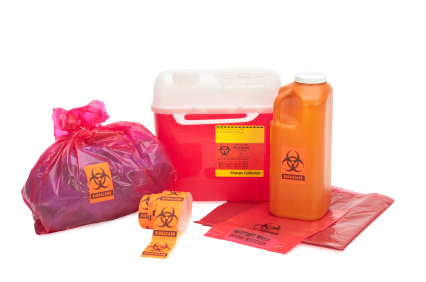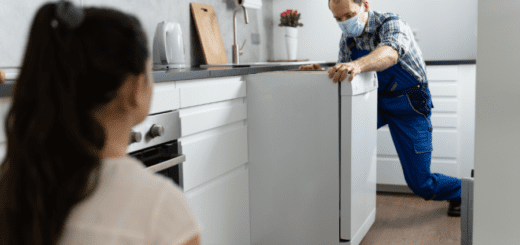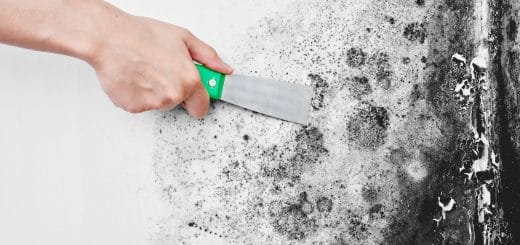Tips to Protect Your Attic From Water Damage
When your home suffers water damage, it can be stressful to deal with. PorousPorous describes a material that contains small openings or ... More building materials will absorb any water and continue to do so until the water or moisture is removed. The water absorptionAbsorption is the process by which a material takes in or so... More will then ruin the building materials and as they continue to take in water, the water spreads and can affect new areas of your property, creating a bigger issue. If the water damage isn’t addressed in a timely manner, it can even leadLead is a heavy metal that can be toxic to humans, especiall... More to moldMold is a type of fungus that grows in damp or humid conditi... More growth.
When it comes to water damage in your home, the attic may not be the first place you are concerned about. But the attic shouldn’t be ignored, because it is susceptible to water damage just as easily as any other area of the house. In fact, many cases of water damage in an attic are caused by roof leakage, which is a whole other problem. Knowing this, it’s important to take the necessary measures to prevent your attic from experiencing water damage.
Continue reading to learn more about what you can do to prevent water damage in the attic of your home.
How Can I Prevent Water Damage in the Attic?
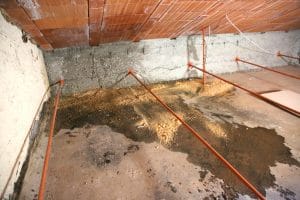
When it comes to water damage the attic shouldn’t be ignored, as it is very susceptible to water damage.
Keep Your Roof in Good Condition
As aforementioned, many cases of water damage in an attic are caused by a roof leak. If you maintain your home’s roof and keep it in good condition, then you can prevent your roof from leaking in the first place.
One way to do this is to have a roofing contractor perform regular inspections. There are also things you can do on your own. For instance, properly trimming any tall trees near your roof will prevent any dead limbs from falling onto the roof and damaging it. Be sure to clear the roof of any debris as well.
Clean your gutters as well so that they can drain water instead of allowing the water to pool up near the roof. You need to check that they are properly directing water away from your home, too. If downspouts aren’t directing water from your home, it can cause water damage in other areas of your property.
RepairRepair is the act of fixing or restoring damaged property, m... More Any Roof Damage
If you hire a roofing contractor, they can identify whether your roof needs repairs and can fix such problems. If you opt not to get a roofing contractor, you can inspect the roof yourself. Look for shingles that are missing or damaged, and look for other components that might be cracked or damaged, such as the flashing.
If you discover any problems, have those fixed right away to prevent them from causing issues and leading to potential water damage in the attic.
Ventilate and Insulate Your Attic
Without proper ventilationVentilation is the process of exchanging or circulating air ... More in your attic, any moisture that’s trapped will increase, making it more likely for water damage to occur. This is especially important to do for the winter because warm air rises. This warm air will enter the attic and then condense because of the cold surfaces present there. Without proper ventilationVentilation is the process of exchanging or circulating air ... More, the condensation is trapped in the attic with nowhere to go and will cause damage.
Adequate ventilationVentilation is the process of exchanging or circulating air ... More is important, too, because of how it controls the temperature in your attic. With ventilationVentilation is the process of exchanging or circulating air ... More, attics in the winter will remain warmer than it is outside, preventing ice dams from forming on your roof’s edges. Without ventilationVentilation is the process of exchanging or circulating air ... More, there’s a good chance ice dams will develop, which can leadLead is a heavy metal that can be toxic to humans, especiall... More to water damage.
InsulationInsulation is a material used in buildings to reduce the tra... More is in good condition when it’s thick, soft, and dry. If your attic’s insulationInsulation is a material used in buildings to reduce the tra... More doesn’t have these features, then you need to replace it. InsulationInsulation is a material used in buildings to reduce the tra... More that’s thin and flat will result in high levels of moisture.
Perform Regular MaintenanceMaintenance is the routine care, inspection, and repair of a... More on Attic Appliances
If you have any appliances or an HVAC system in your attic, it’s crucial that you conduct regular maintenanceMaintenance is the routine care, inspection, and repair of a... More on these products — particularly if any of these products produce moisture. For example, damaged HVAC systems can leak water, but with regular maintenanceMaintenance is the routine care, inspection, and repair of a... More, you can fix the HVAC system before it becomes a legitimate issue.
Check Appliance VentilationVentilation is the process of exchanging or circulating air ... More
Make sure that all household appliances are vented to direct air outside and not into the attic. You don’t want any moisture being directed into your attic let alone anywhere in your home, because the moisture can leadLead is a heavy metal that can be toxic to humans, especiall... More to water damage.
By venting appliances to the outside, you ensure any moisture leaves your home, decreasing the likelihood for water damage.
What Should I Do if There’s Water Damage in the Attic?
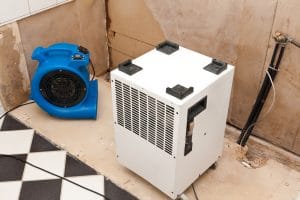
Immediate action will prevent further water damage and potential moldMold is a type of fungus that grows in damp or humid conditi... More growth.
Go into your attic and check the wood and insulationInsulation is a material used in buildings to reduce the tra... More for water spots, discoloration, and moldMold is a type of fungus that grows in damp or humid conditi... More. Any of these can indicate water damage. The same goes if your attic smells musty.
If you do find water damage in your attic, you need to act right away by seeking help from a professional water damage cleanup and restoration service. Immediate action will prevent further damage and, if it hasn’t already occurred, limit the potential for moldMold is a type of fungus that grows in damp or humid conditi... More growth.
With help from water damage restoration professionals, not only will the damage itself be addressed but so will the source of the damage. Your attic will be cleaned, dried, and restored to its original condition. Any resulting odors and moldMold is a type of fungus that grows in damp or humid conditi... More growth are also removed.










